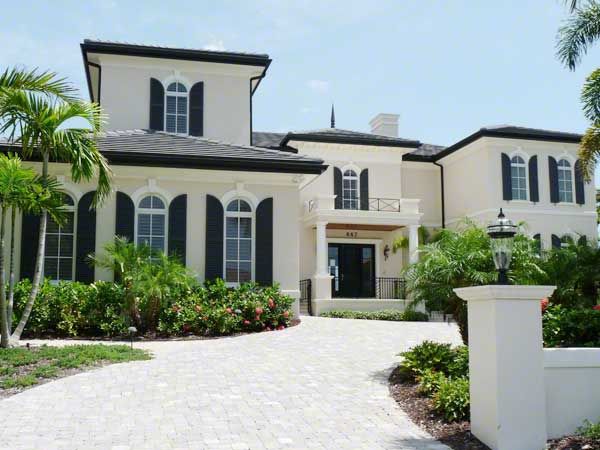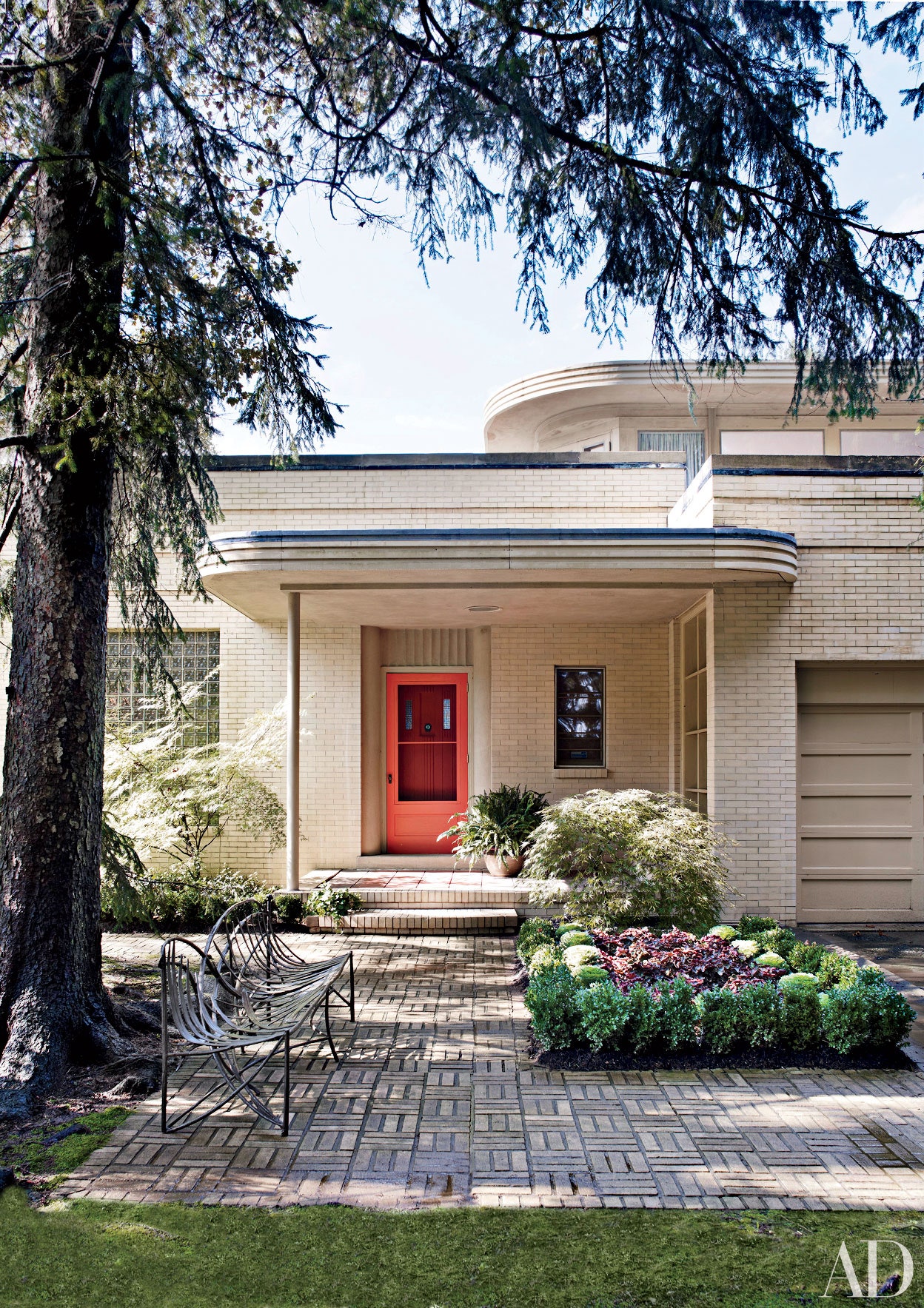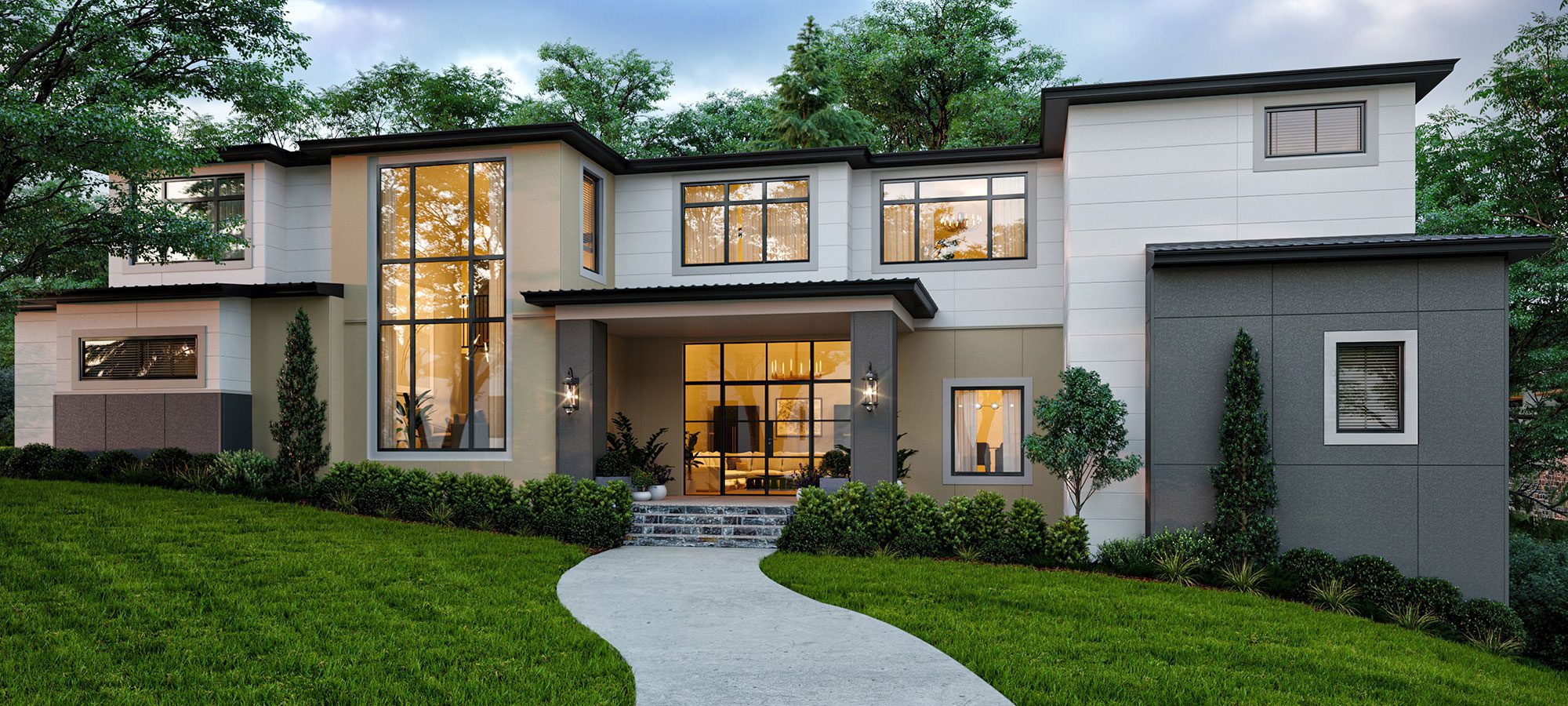
House siding is an important element of any home’s exterior. You can choose from natural or synthetic siding, which can dramatically improve the exterior appearance of your house. It is suitable for all climates and styles.
Vinyl siding is popular for homeowners who desire low maintenance and durable. Vinyl siding is available both in vertical and horizontal panels. Vinyl can be made to look like wood, or stained. Vinyl is cost-effective, has a long warranty and can be customized.
Another popular option is steel siding. It is strong and durable. It's also very easy to put in. It can withstand fire and water, and comes in many different colors and styles. Because it is made from recycled material, it is also more environmentally friendly.
Fiber cement siding can be used as an alternative to vinyl or wood and has a masonry look. It is durable and can withstand termites. It is however, quite expensive.

Fabricated stone is another siding option, and it is made of real stone. It needs a framework and plywood backing. It isn't susceptible to decay or mold and is as light as the real deal. It can crack and is therefore more expensive.
Stone is an incredible natural resource. Stone can be used together with wood to create a timeless look for your home. It is heavier than many other types of siding but adds elegance and texture to your home's exterior. It isn't cheap, but professional installation may be necessary.
Brick is another natural material that is available in many styles. It is durable and resistant to fire, and is known for its timeless appeal. It's a little more expensive than the other options, but it is well worth it.
Metal is also a popular choice for house siding, and it can be painted. It is available in a variety colors and styles. They are also very easy to put up. Its strength makes the product durable and can last decades.
Brick and stucco siding are two of the most popular siding options in coastal areas. These sidings have a beautiful natural appearance that enhances any home's curb appeal. They are very durable, and they are affordable to maintain.

Log vinyl siding might be the best option if your home has the rustic appearance of a log house. It is more affordable than real stone and offers a similar appearance. It is durable and low-maintenance and can be painted to any color.
There are a number of other options, including aluminum and steel. These siding materials are long-lasting and can be used for up to 40 years. They are also eco-friendly and easier to clean than most other types.
FAQ
Which order should you do your home renovations?
First, decide where you want everything to go in your renovations. If you are looking to sell your property soon, you need to plan how you will present your home to buyers. The design of your kitchen and living room should be considered. Once you have chosen the rooms you want to remodel, you can start looking for contractors who can help you. Once you have hired a contractor you can begin work on your renovation project.
How many times should I change my furnace filter?
The answer will depend on how often your family is going to use your heating system. You might consider changing your filter less frequently if you are likely to be away from your home for extended periods during the cold months. You may be able wait longer between filters changes if you don't often leave the house.
A furnace filter typically lasts for three months. This means that you should replace your filters every three months.
For information on when to replace your filter, you can consult the manufacturer. Some manufacturers recommend that you replace your filter after every heating season. Others suggest waiting until there are visible dirt deposits.
What room do I need to remodel first?
The heart of any home is the kitchen. It's where you spend most of your time eating, cooking, entertaining, and relaxing. Start looking for ways that you can make your kitchen functional and more attractive.
The bathroom is also an important part of any home. It offers privacy and comfort for daily chores such as washing your hair, brushing your teeth, shaving, or getting ready to go to bed. These rooms can be made more functional and attractive by installing storage space, a shower, or replacing older fixtures with newer models.
Is it better for floors or walls to be done first?
The best way for any project to get started is to decide what you want. It is important that you think about how and who you want to use the space. This will help you decide if you should go for flooring or wall coverings.
If you have decided that you want to create an open plan kitchen/living area then you may choose to install flooring first. Wall coverings are an option if you prefer to keep this space private.
Is it worth the extra cost to build or remodel a house?
There are two options if your goal is to build a new home. A pre-built home is another option. This type of home is already built and ready to move in to. Another option is to build a custom home yourself. With this option, you'll need to hire a builder to help you design and build your dream home.
The cost of building a new home depends on how much time and money you spend designing and planning it. Because you will likely be doing most of the work yourself, a custom home can require more effort. But you still have control over the materials you choose and how they are placed. It might be easier to find a contractor that specializes in custom-built homes.
A new home is typically more expensive than one that has been renovated. This is because you will have to pay more for the land as well as any improvements that you make to it. You will also need to pay inspections and permits. On average, the difference in price between a new and remodeled house is $10,000 to $20,000.
What Does it Cost to Renovate Your House?
The cost of renovation depends upon the type of material used, the size of the project and the complexity of the job. Some materials such as wood require additional tools like saws and drills while others like steel do not. The price of renovations will depend on whether you need your contractor to do everything or if the work is done by you.
The average home improvement project cost is between $1,000 and $10,000. The average cost of home improvement projects would be between $5,000 and $25,000. The cost to hire professionals would range from $5,000 to $25,000,000. On the other side, you could spend up to $100,000 if your task is completed entirely yourself.
It is important that you are aware of the many factors that affect the final price of renovations. The cost of renovation depends on the material used (e.g. brick vs concrete), the size of the project, the number of workers involved, the length of the project, etc. These are important considerations to remember when estimating total renovation cost.
Can you live in your house while it's being renovated?
Yes, I am able to live in a house and renovate it.
Is it possible to live in a house with renovations going on? The duration of the construction works will affect the answer. If the renovation process lasts less than 2 months, then yes, you can live in your home while it's under construction. You cannot live in your house while the renovation process is ongoing if it lasts more than two years.
You should not live in your house while there is a major building project underway. This is because you could be injured or even killed by falling objects on the construction site. Noise pollution and dust from heavy machinery on the job site could also be a problem.
This is especially true if you live in a multi-story house. This is because the vibrations and sound created by construction workers could cause serious damage to your property.
You'll also need to cope with the inconvenience of living in temporary housing while your house is being renovated. This means you won't be able to use all the amenities in your own home.
For example, you will not be able to use your washing machine and dryer while they are undergoing repair. In addition to the unpleasant smells of chemicals and paint fumes, you will have to endure the noises made by workers.
All these factors can lead to stress and anxiety among you and your family members. It is therefore important to plan ahead so that you don't end up feeling overwhelmed by the situation.
When you decide to start renovating your home, it is best to do some research first so that you can avoid making costly mistakes along the way.
It is also advisable to seek professional assistance from a reputable contractor so that you can ensure that everything goes smoothly.
Statistics
- It is advisable, however, to have a contingency of 10–20 per cent to allow for the unexpected expenses that can arise when renovating older homes. (realhomes.com)
- The average fixed rate for a home-equity loan was recently 5.27%, and the average variable rate for a HELOC was 5.49%, according to Bankrate.com. (kiplinger.com)
- Design-builders may ask for a down payment of up to 25% or 33% of the job cost, says the NARI. (kiplinger.com)
- They'll usually lend up to 90% of your home's "as-completed" value, but no more than $424,100 in most locales or $636,150 in high-cost areas. (kiplinger.com)
- ‘The potential added value of a loft conversion, which could create an extra bedroom and ensuite, could be as much as 20 per cent and 15 per cent for a garage conversion.' (realhomes.com)
External Links
How To
Five Things You Must Know Before Starting Your Home Renovation
-
This is a big undertaking. If you're planning on embarking on major home improvement projects like renovating your kitchen, bathroom, or building a brand new house, it's certain that you'll need to have some assistance. If you aren't confident enough to take on such a daunting task, you may want to reconsider. It will take up much of your time and money. There won't be any real benefits. Instead, hire someone who has experience in this field to assist you. They will help you save time and stress and still give you a beautiful home to live in.
-
How much should I budget? This one may seem obvious, however spending too much on renovation projects could make matters worse. The reason is because you'll probably find yourself having to pay back most of the costs at the end of the day. You should stick to your budget, even if it's a tight one. You could wind up spending a lot and not getting any return.
-
Should I use DIY or hire professionals? - While there is no right or wrong answer, we recommend that you hire professional tradespeople if possible. You can trust them to provide you with advice and guidance on how to proceed with your job. They will install the plumbing correctly, take care of safety, and offer a guarantee after they have finished their work. DIY projects often involve a lot trial and error. You'll learn a lot the hard way. You'll also have to deal with any problems that may arise throughout the process.
-
What are my options? - Don’t underestimate the cost associated with a home renovation. Even if you think you can manage it on your own, you might find that you need to borrow money from friends and family just to cover the bills. And if you're planning to sell your current property soon after completing the renovations, you'll definitely need to factor in the price of selling it into your calculations.
-
Where do I start? There's no right or incorrect place when it comes down to where to start. However, we would suggest that you choose somewhere that you enjoy working on. This will help you stay motivated and make it less likely that you procrastinate. Avoid places that need a lot of attention. For instance, you shouldn't attempt to redecorate your living room if you're constantly dealing with dust and dirt.